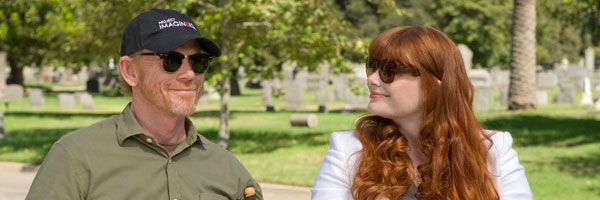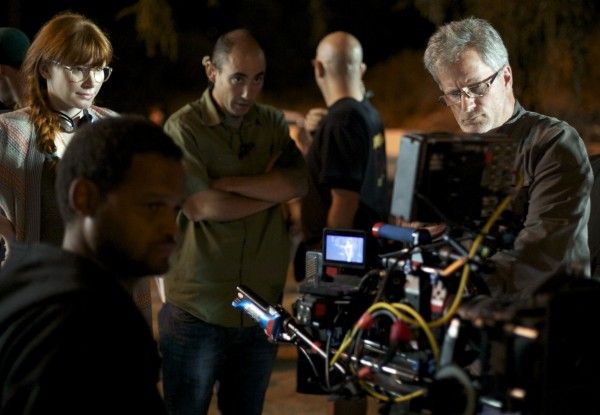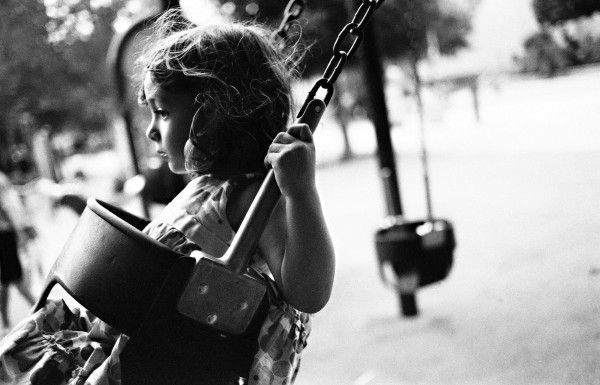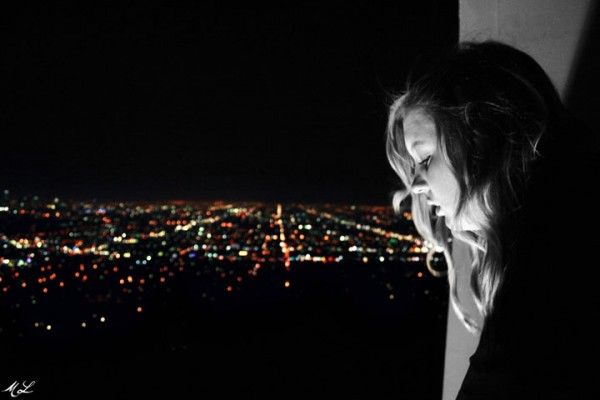As part of Canon’s “Project Imagin8ion” campaign, two-time Academy Award winner Ron Howard and daughter Bryce Dallas Howard made a film inspired by eight user-generated photos, called when you find me, that recently screened at the Sundance Film Festival. Alternating between the past and present, the short is an emotional fable of two people coping with loss in very different ways, and what it takes to find peace within yourself and reconciliation with the ones you love.
During this recent exclusive phone interview with Collider, Ron Howard talked about how he ended up signing on as producer for this project with his daughter in the director’s chair, that they received nearly 100,000 images that had to be narrowed down to 10 in each of the 8 categories before the final images were selected, how the movie ended up being very personal and very character driven, how clearly proud he is of his daughter’s work, and that he hopes film schools use this kind of exercise to remind people that the world around them offers wonderful ways to push their thinking and imagination. Check out what he had to say after the jump:
Question: How did “Project Imagin8ion” come about, and what was your initial reaction when you were asked to create a film inspired by photos?
RON HOWARD: I’ve never done anything like this, with a sponsor or a company product before, but the possibility was submitted to me and I was immediately enthralled by their concept for this creative experiment – this idea of using these images that would be decided upon, based on people entering a contest with their photographs, and then us using that as the foundation and jumping off place for a narrative story that was a work of fiction. It was kind of a high-wire act. I really didn’t know what it would lead to, but I had a hunch it would be surprising and fun. So, I decided to jump in there. Canon is a great product and I’ve been around Canon gear, all my career, more or less. It’s become more visible and more actively a part of the professional filmmaking community in the last decade or so, and it’s just growing, in that regard.
How did your daughter end up as the director of this short?
HOWARD: I let everybody know that I couldn’t direct it, and they said that I could sponsor or mentor somebody. And then, the idea of Bryce [Dallas Howard] doing it was great because she had directed one short film, had just done a lot of acting, and was looking to direct something else. She’s also interested in moving behind the camera on a feature film level, at some point. And, I knew she’d be an interesting person to collaborate on this with. She has a different point of view and aesthetic than I do, and she’s another generation. I just thought she’d be an interesting collaborator, even if she wasn’t my daughter, but the fact that she is made it pretty interesting. And then, the Canon people were really true to their word about not trying to manipulate the process creatively, and really allowing it to be something that was very pure.
Were you ever worried that you wouldn’t get enough submissions, or that you wouldn’t get anything you were inspired by?
HOWARD: I didn’t know what it would lead to, but we got 96,000 photographs to chose from. I only had to select from the finalists. It was widdled down by a panel, and then by people voting on the internet. But, even the 10 photographs in each category were all spectacular. I couldn’t judge it based on the best photograph. I did try to look at them, based on the category that they represented. Without knowing what the story was that Bryce and the writer, Dane Charbeneau, were really contemplating, I tried to provide some building blocks that would be inspiring and a little challenging, but I didn’t wickedly through them any obvious road blocks.
I tried to offer up photographs that I thought could lead them in a direction. In fact, it did lead them in a direction that wasn’t the tone or the style I would have guessed. Bryce ended up making a movie that’s almost magical realism, that’s very personal and very, very character driven. I wasn’t surprised by that because she’s a fine actress and she cares about human relationships, first and foremost, but it was also very, very visual. I know for a fact that those breakthrough ideas and the surprisingly visual choices that were made were stimulated by the contest winners and their creativity. It really was a collaboration and, in this case, a really successful creative experiment.
Was there a point that you realized that your daughter had inherited the directing bug from you, and it was something that she wanted to do, beyond just her acting career?
HOWARD: Well, she started directing plays in college and she enjoyed it, but she didn’t particularly express any great interest beyond that. And then, she made a short film about four years ago, and it was good. At that point, she actually began taking a lot of classes, in her spare time, in cinematography and screenwriting, and just deepened her understanding of the medium, and I could really see the difference. I visited the set a couple of times, but she didn’t need my help. She really understood the script and had helped shape it into something that reflected her point of view, her aesthetic and her taste. I think she directed a very poignant, beautiful, surprising, almost poetic short film.
As a filmmaker who’s been in the business for quite awhile now, how exciting is it to find new ways of creating stories, like you did with this whole process? Is that something that stimulates your imagination and inspires you, with what you’d like to do, in the future?
HOWARD: It really does. I think it’s a fantastic creative experiment. I’d like to see film schools use this kind of exercise to remind people that the world around them offers wonderful ways to push their thinking outside the box and to stretch their own imagination. Also, there’s this fantastic ever-expanding, new aesthetic that is so informed by the creative flexibility that technology is offering, and Canon is right at the forefront of that and has been for awhile. I think people are learning that they really do have a creative point of view. They can make images or edit together short films, or feature films, for that matter, that really can say something to other people and can express themselves in ways that they might not necessarily care to articulate in a conversation. That’s something very exciting and fulfilling. I think that it’s fueling the creative process, all around the world, and just speeding up this new, evolving aesthetic.




